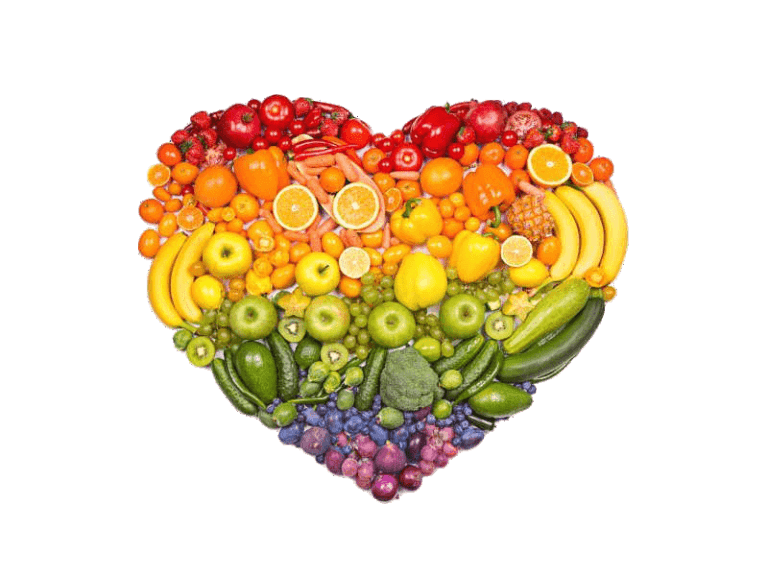
Savoring Serenity: The Intricate Dance Between Food & Your Feelings
Imagine if every mouthful could bring you a step closer to emotional harmony.
It may sound strange, but what if the pathways to inner balance are hidden within your next meal – a profound connection often overlooked in our busy lives.
Have you ever noticed how certain foods seem to uplift your spirit, while others leave you feeling depleted?
This subtle awareness reveals a profound truth – the nourishment we choose creates ripples through our emotional well-being, not just our physical health.
The connection between what we consume and how we feel is a dance as delicate as it is powerful.
Like the gentle flow of a river shaping the landscape it traverses, our food choices gradually sculpt our emotional terrain.
In this exploration, we unravel the threads of this intricate relationship, revealing how mindful nourishment can become a cornerstone of emotional wellness.
The ancient wisdom of listening to our bodies merges beautifully with modern scientific discoveries about the gut-brain connection.
Each insight serves as an invitation to approach your plate with renewed awareness – not just of what you eat, but how you eat, and the sacred relationship between nourishment and emotional balance.
Let’s explore and discover the captivating dance between food and your feelings, and awaken to the transformative potential of each mindful bite.
You’re Not Meant to Walk Alone
Join conscious seekers and illuminate your true self. Unlock higher awareness, spiritual growth, and whole-person well-being.
Join the Wholebeing Newsletter Today!
By signing up, you agree to receive our well-being emails, special offers, and agree to the Privacy Policy. You can unsubscribe anytime.
Unraveling the Connection Between Food & Emotions
The Gut-Brain Axis
The complex interplay between our food and our feelings finds its roots in an incredible biological connection – the gut-brain axis.
This term embodies the biochemical dialogue that unfolds between our gastrointestinal tract and the nervous system.
Far from a one-way street, this relationship allows for a constant exchange of information, linking the food we consume directly to our emotional state.
Research has shown that the gut is home to around 95% of the body’s serotonin, a neurotransmitter essential for maintaining mood balance.
Changes in the gut microbiome, influenced by what we eat, have been found to impact serotonin levels, thereby directly affecting our emotional well-being.
Now, let’s look at the nutrients that play a pivotal role in this process…
Mood-Modifying Nutrients
A vibrant mosaic of vitamins, minerals, and amino acids present in our meals impact our emotions, often more than we realize.
The impact of vitamins, particularly B vitamins, on emotional health cannot be overstated.
Several of these vitamins, including B6, B9 (folate), and B12, are critical for the synthesis of brain chemicals that influence mood and other brain functions.
Lower levels of these vitamins have been linked with higher rates of depression, providing evidence for their role in maintaining emotional health.
Minerals, too, play a significant role in emotional well-being.
Magnesium, often referred to as nature’s tranquillizer, helps reduce stress, improve sleep quality, and uplift mood.
And then there’s zinc, whose deficiency has been associated with mood disorders.
The protein we consume is broken down into amino acids, some of which are key to the production of mood-regulating neurotransmitters.
Tryptophan, for instance, is an amino acid that the body converts into serotonin.
Understanding these nutrient-mood connections can serve as a catalyst for change, enabling us to consciously incorporate mood-boosting nutrients into our meals, one bite at a time.
From our gut to our emotional well-being, it’s clear the dance between food and feelings is deeply intertwined with our biological functions.

The Emotional Impact of What We Eat
Uplifting Edibles: Foods for a Positivity Boost
The path to emotional well-being can be delicious and nutritious with the right choice of foods.
Known as “uplifting edibles,” these powerhouses of nutrition wield the ability to influence our moods, giving us a greater sense of positivity and balance.
From the wide array of mood-enhancing foods, several wholesome and nutritious choices stand out.
These foods, rich in essential nutrients, can transform our emotional landscape, infusing it with positivity and tranquility.
For instance, consider bananas, a fruit packed with serotonin-boosting properties.
Serotonin, a neurotransmitter, plays a crucial role in mood regulation and is often dubbed the “feel-good hormone.”
By elevating the levels of serotonin in the brain, bananas can significantly contribute to feelings of happiness and well-being.
Another notable edible is chamomile tea.
Renowned for its calming influence, it can help reduce anxiety and promote sleep, thus facilitating a positive emotional state.
In the world of healthy fats, avocados and walnuts take the lead.
Avocados, packed with monounsaturated fats and folate, have an association with a lower risk of depression.
On the other hand, walnuts are rich in alpha-linolenic acid, a type of Omega-3 fat, which has been linked to a lower risk of mood disorders.
Whole grains, such as oats and brown rice, also feature as uplifting edibles.
They are a great source of B-vitamins, which play a key role in brain function and can help improve our mood.
Additionally, fermented foods like yogurt and kimchi deserve mention.
By nourishing our gut microbiota, they contribute to mental well-being via the gut-brain axis, essentially serving as natural mood enhancers.
Incorporating these uplifting edibles into our daily diet can have a profound effect.
Not only do they maintain our physical health, but they also positively influence our emotional health.
Mood Dampeners: Foods Linked to Anxiety, & Low Mood
On the flip side of our culinary coin, certain foods may not be doing our emotional state any favors.
These “mood dampeners” often sneak into our diets unnoticed but can significantly impact our emotional health.
Common culprits include refined sugars and simple carbohydrates, such as white bread, pastries, and sugary snacks, which create dramatic spikes and falls in blood sugar levels, triggering mood swings and irritability.
Excessive caffeine consumption from coffee, energy drinks, and sodas can heighten feelings of anxiety and disrupt sleep patterns, further contributing to emotional instability.
Additionally, heavily processed foods—like fast food, frozen meals, and packaged snacks—are frequently devoid of essential nutrients and loaded with additives, preservatives, and unhealthy fats that can negatively influence our mood.
As we deepen our understanding of how our dietary choices influence our emotional health, it becomes evident that our plates are powerful tools in curating not only our physical well-being but also our mental and emotional balance.
In the world of wellness, every bite counts!

Understanding Emotional Eating & Comfort Food
The term “comfort food” aptly encapsulates our human tendency to seek solace in familiar flavors and textures.
Often laden with nostalgic or sentimental value, these foods weave an emotional tapestry that blankets our stress and offers respite, even if momentarily.
Comfort food appeals to our emotional selves more than our physical needs; it’s not uncommon to crave a mother’s homemade soup when feeling unwell or a specific brand of chocolate after a taxing day at work.
These cravings, closely tied to our emotions, highlight the power food can hold over our emotional state.
In our quest for comfort, we may unwittingly veer into emotional eating, using food as a means to manage, suppress, or distract from uncomfortable emotions rather than to satisfy physical hunger.
While emotional eating might feel like a quick fix during periods of stress or anxiety, it can become an unhealthy coping mechanism if not checked.
It’s essential to distinguish between reaching for a comforting meal in response to an emotional setback and consistently using food as an emotional crutch.
Understanding the nuances of comfort food and emotional eating provides a broader perspective on the intricate link between food and our emotional health.
The key lies in fostering a balanced relationship with food—one that nourishes us physically and emotionally without becoming a substitute for managing our emotional well-being.

The Transformative Power of Mindful Eating
Harnessing mindfulness can reveal a powerful path toward balanced emotional health.
A practice rooted in ancient traditions, mindfulness, when applied to eating, becomes a transformative tool that connects us to our food in profound and meaningful ways.
The essence of mindful eating lies in engaging fully with the act of consuming food.
It invites us to be present and attentive, embracing the colors, textures, aromas, and tastes that each morsel offers.
As we cultivate this mindful approach to food, we become more attuned to our body’s hunger and fullness signals, learning to eat in response to physiological needs rather than emotional triggers.
Moreover, mindful eating can illuminate the emotional responses food incites within us, offering invaluable insights into our relationship with food.
It empowers us to make conscious, intentional choices, fostering a healthier relationship with food and leading to greater emotional balance.
To cultivate a mindful eating practice, consider these practical strategies:
1. Eat Without Distractions: Remove digital devices, books, and other distractions from your dining space. Focus solely on the food before you, cherishing the experience it provides.
2. Engage All Senses: From the vibrant colors of a salad to the aroma of a warm soup, engage your senses fully in each meal. This enhances appreciation for your food and promotes satiety.
3. Slow Down: Take time to chew your food thoroughly, savoring each bite. This not only aids in digestion but also allows the body and mind to register fullness.
4. Acknowledge Responses: Notice any emotions or physical sensations that arise during eating. This awareness can provide clues about your relationship with certain foods and your emotional responses to them.
5. Show Gratitude: Taking a moment to express gratitude for your food nurtures a deeper connection to your meal and can enhance the sense of satisfaction derived from it.
Incorporating mindfulness into our meals can truly transform our approach to food, offering a potent tool for achieving balanced emotional health.
Mindful eating encourages us to savor the journey of nourishing our bodies and minds, providing a profound sense of serenity that extends far beyond our dining tables.

I hope my content sparks something deeper within: a moment of clarity, a gentle shift, or a deeply felt truth. Creating meaningful content takes time and heart. If you found value here, consider supporting my work to keep this space alive.
Vlad
Final Thoughts
Navigating through the maze of our emotional health may seem daunting, but as we’ve traversed this journey, we’ve seen how the food we consume is intricately woven into the tapestry of our emotions.
It is clear that by understanding and embracing the dance between food and feelings, we can harness a powerful tool in our pursuit of holistic well-being.
As we move forward, let us remember that every meal is an opportunity to nourish not just our bodies, but our minds and spirits as well.
By making conscious choices and cultivating mindfulness in our eating habits, we can create a deeper connection to our food and ourselves.
In this journey of self-discovery, may we savor each bite, honor our emotional landscapes, and embrace the transformative power of mindful eating.
Here’s to nurturing our well-being, one mindful mouthful at a time.
Share the Love, Spread the Wisdom
You May Also Like:



